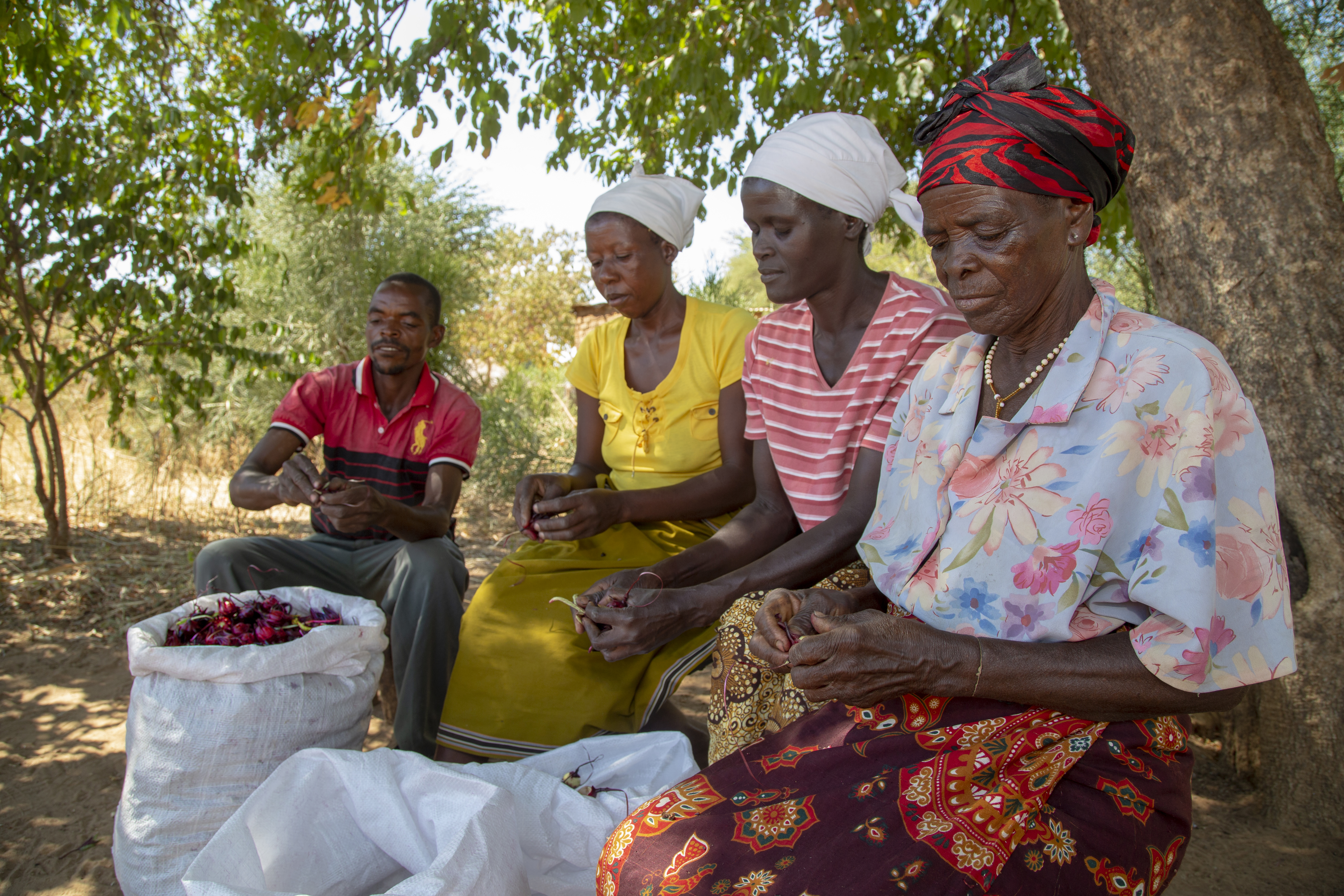Embracing organic opportunities to drive local development in Zimbabwe
When Organic Africa’s Chief Executive, Dominikus Collenberg, founded the company in Zimbabwe in 2007, his initial objective was to prove the positive impact a small enterprise could have on vulnerable local communities.
That goal has been well and truly achieved. Leaning on his experience in organic farming, Dominikus has created a business that now works with 4,500 smallholder farmers and 7,000 wild collectors, boosting their incomes by 40% on average. And he’s not stopping there.
“From the very start our intention was to always have a positive social, environmental and economic impact,” he explains on a video call from Organic Africa’s HQ in Harare. Key to this is focussing on commodities that are in high demand internationally and could be processed locally.
“We decided only to produce things that could be distilled, pressed, dried or sorted so that more of the value created stays in the local area. We have processing centres in rural areas, often in some of the poorest places in Zimbabwe.”

The wider economic activity these centres stimulate is often transformative says Dominikus, who& has seen struggling villages grow into more economically diverse and prosperous places, because of the jobs and raised incomes they provide.
The centres process commodities such as rosella, which is used as an ingredient in health drinks and foods, and for skincare products. Organic Africa introduced rosella to Zimbabwe in 2011 and it has become one of its core products. Rosella is relatively new to the country, which has given Organic Africa the opportunity to work with its farmer suppliers to ensure the crop is harvested, dried and packaged in a way that meets organic certification standards, opening the door to more lucrative markets.
Part of the company’s success is its eye for opportunities like this, and the ability to match what can be grown in specific areas of Zimbabwe with undersupplied international markets.
Another example is stinging nettles used for herbal teas, says Dominikus. As rates of production have dropped in Eastern Europe, Organic Africa has enabled farmers in Zimbabwe to fill the gap. The company also harvests and processes African bird’s-eye chillies, not for hot sauces or homemade curries, but for a medical products manufacturer which uses them to generate the heat in heat plasters.
“Because we can produce chillies to a certain specification without using additional chemicals they meet European legislation for medical applications,” says Dominikus.
The demand for these kinds of high-quality products means large international buyers are willing to enter into long- term agreements with Organic Africa to secure the supply they need. In turn, Organic Africa provides its smallholder farmers and wild collectors with the economic security that is so often lacking in vulnerable regions.
In practice this delivers two transformative benefits, says Dominikus: “Number one, a family who works with us earns 40% more cash income than those that don’t. Number two, we offer them a contract to the end of the next season, so they know what they will be earning in a year’s time, rather rather than going to market and finding the price is depressed. In a country which suffers from price volatility, this provides the certainty they need to build their lives on.”
To ensure new crops can be viably grown in local conditions the company runs test trials, it also has a training centre where lead farmers can develop organic growing techniques and skills. Here they are introduced to the numerous crops Organic Africa processes, taught how to cultivate them and shown how to use the company’s traceability app. They then share this information with other farmers in their area who supply Organic Africa.
The CFC’s investment of USD 850,000 over five years, will help Organic Africa expand its positive impact even further.
CFC Impact Investment Manager Peter Nielsen, who has worked closely with Organic Africa to organise the funding, says: “The company has a very attractive impact model which achieves both social and environmental impact. Sustainably grown high-value herbs, spices and indigenous medicinal plants provide valuable cash income for smallholders and farm workers while reducing the pressure on agricultural land caused by other crops grown with more extensive and high-input techniques. At the same time, Organic Africa’s work on sensitising its suppliers and stakeholder communities to the financial value of preserving ecosystems is a real boon to biodiversity, climate, and the livelihoods that ultimately depend on them.”
Dominikus now has a new objective for Organic Africa – to reach a total of 25,000 smallholders and collectors within four years, boosting the additional income they receive even further from 40% to 50%. The CFC funding will also support the company to scale-up its sustainability initiatives. These include creating biochar fertiliser from baobab tree fruit shells, drilling bore holes so that people can access drinking water without the need to boil it and developing tree nurseries to ensure future generations continue to benefit from their harvest.
Most importantly, behind the impressive numbers and plans are people whose lives are being changed for the better. And that's what truly drives Dominikus: “I recently gave a lift to a farmer in a rural area where we grow rosella. He said to me: ‘I just want to let you know how thankful we are for what you are doing here.’ How often do you get that in your job?” As Organic Africa expands, he is likely to be hearing it even more often.

